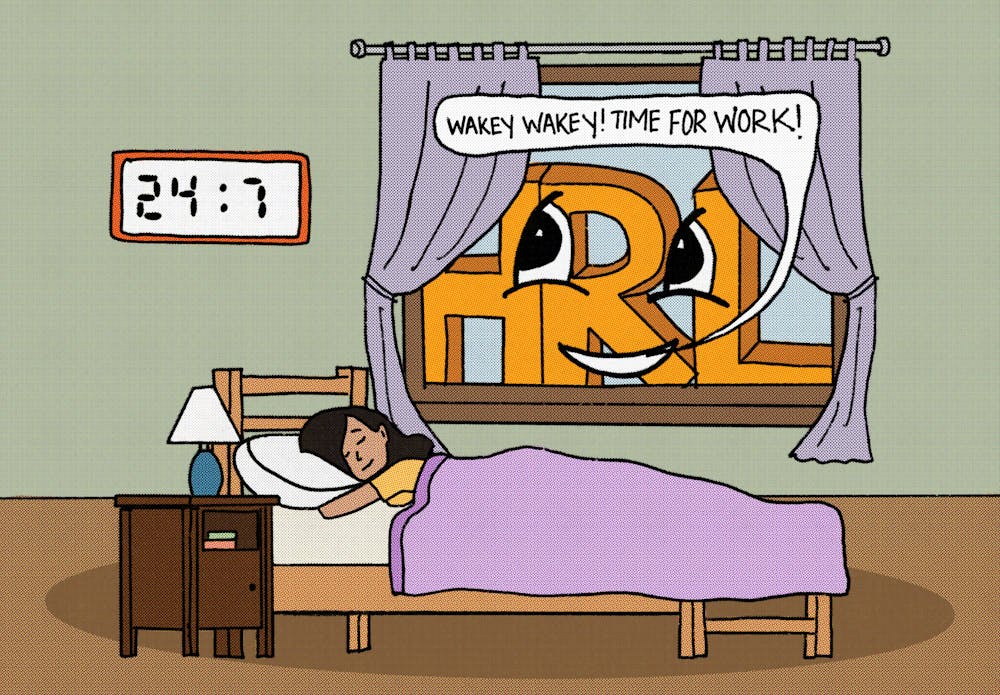Housing and Residence Life has been under ever more scrutiny this past year. Much of this bad press has to do with HRL’s evolving relationship with Resident Advisors. Specifically, scrutiny has arisen due to compromised RA autonomy and a lack of compensation for their work. HRL has a host of guidelines that theoretically navigate and govern the power imbalance between RAs and HRL. However, those guidelines seem to directly contradict some of the actions taken by HRL. Increasingly, this relationship does not resemble a voluntary partnership between two equally powerful allies, but rather a hugely hierarchical dynamic in which both treat RAs as school property to be managed and HRL fails to compensate them. The dissonance between the de facto status of RAs and their compensation will inevitably hurt both current RAs and prospective applicants, compromising HRL’s ability to realize its mission.
HRL’s own website describes the role of RAs and the organization writ large as “[supporting] the physical wellbeing of students and their academic, social and emotional development.” But that description overlooks much of what it means to be an RA. Being an RA means being responsible for a large batch of students on a 24/7 basis. RAs must be on call for any emergencies at least once a semester and on coverage for more than four weekends. And on top of responsibilities in crisis management, RAs must host certain events throughout the semester to help integrate residents into the University community. Simultaneously, RAs must prioritize regular meetings with their immediate superior, the Senior Resident, and regularly document issues to keep HRL in the loop of all ongoing situations. Welcome to your year-round position — and do not forget you are a student on top of this.
Theoretically, HRL argues that RAs are compensated for this job in the form of free housing and a limited meal plan. However, one might argue that these are basic preconditions of the job — if HRL did not provide free housing and meal plans, they would be guilty of creating employment without creating the preconditions for that employment. Failing to provide RAs with these two things would be the equivalent of failing to provide teachers with a school building. Housing and a meal plan are not payments so much as the bare minimum for RAs to exist at all.
Even if we take housing and meal plans as a legitimate form of compensation, it would be deeply insufficient. If we combine the monetary value of both housing and a meal plan throughout an academic year, RAs would still be an underpaid class of employees on Grounds. It must be factored in that RAs do not work traditional hours — rather, they frequently operate at odd hours of the day and night, serving as therapists, emergency responders and event planners. Every other role at the University, from custodial to administration, does not have such a range of expectations and compensates well beyond that of RAs.
Understanding this undercompensation makes the egregious nature of HRL’s interference in the RA role appear even worse. For example, HRL decided to insert itself into the RA appointment process last year by pre-assigning 25 percent of its staffers. Previously, students had a certain degree of control over appointments because SRs selected their own staff. Blindsiding their own SRs with last-minute changes to the status quo demonstrated that HRL is increasingly exercising control over Resident Staff as employees not partners, without compensating them accordingly. Rather than acknowledge the stressfulness of being an RA and granting them greater autonomy, HRL has begun to view RAs more as employees and less as students doing a difficult job.
Given how difficult the job of an RA is and how little benefits are earned for this hard work, HRL is bound to drive away otherwise motivated candidates. When you factor in a string of bad decisions that reduce worker autonomy and undervalue RAs, you have successfully stripped the job of the few merits it may have. Technically, HRL retains the right to make these choices — RAs and SRs are both considered employees of the University. But this categorically ignores the undercompensation for these employees. The University does not pay its RAs any stipends, something that other Virginian institutions do. Yet, they get to infringe on long-established rights without any meaningful feedback from the RAs themselves.
The evolving dynamic between Housing and Residence Life and its RAs illustrates a troubling imbalance that undermines the role's core purpose. By prioritizing control over collaboration while also saying that the very autonomy that they compromise is compensation, HRL alienates the individuals it relies on to maintain a supportive and well-integrated residential community. Without meaningful changes to both compensation and autonomy, the University jeopardizes not only the quality of RA candidates but also the broader principles of student self-governance and worker recognition. If the institution truly values its RAs as more than employees, it must reflect that commitment through equitable policies and practices that acknowledge the unique challenges of the role.
Muhammad Ali Rashid is a senior associate opinion editor who writes about student self-governance for The Cavalier Daily. He can be reached at opinion@cavalierdaily.com.
The opinions expressed in this column are not necessarily those of The Cavalier Daily. Columns represent the views of the authors alone.







